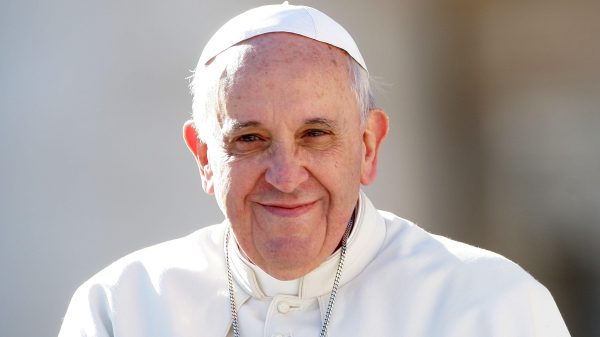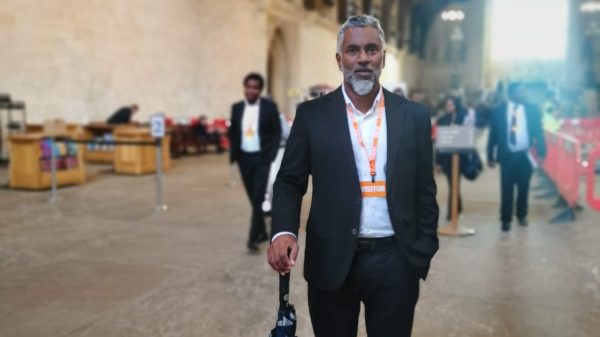The only thing that is surprising is that we are surprised – writes Clemens Calice the CEO of Cygnum Capital Partners, a leading EM investment bank and asset manager.
For some time now, US development assistance has been moving away from a multilateral approach – Europe has been living in denial for too long. The current US administration may possibly have done us a favour. It forces us to confront what has been in plain sight. Europe stands at a critical juncture in its approach to international development. If it plays its hand right, it can reestablish its leadership and create new markets for European industry. Africa is a huge continent at our doorstep. Its development is both a necessity and an opportunity for Europe.
Cygnum Capital, an investment bank and asset manager focused on frontier markets, is one of the most active investors and advisers in Africa. We can attest to the potential of African markets, but our efforts are frequently stymied by European regulation and policies.
Major powers like the US, Russia, and China increasingly view international relations and development aid through a zero-sum lens, departing from Europe’s more collaborative and apolitical approach to development, focused on the ‘common global good’. We may be right, but it only works if everybody plays by the same rules.
It is tempting to simply follow the US model. But there is another way, that is both morally and economically justifiable – and Europe must now show that way. Europe possesses unique strengths in development assistance, particularly in Africa, where our advantage lies in our extensive network of development agencies and, crucially, our private sector’s deep engagement in African markets. Unlike the US Development Finance Corporation’s politically-driven approach, or China’s state-centric model, Europe must seize this opportunity to strengthen its economic ties with Africa in a way that’s mutually beneficial.
So, out of crisis comes a strategic opportunity for European leadership in development finance. To capitalise on this, Europe should nurture and support its own talent, both in the private and public sectors. Here are a few of our suggestions on how to make this happen:
We must reestablish Europe’s financial dominance in Frontier Markets:
Europe should create a capital markets framework that enables private European financial institutions to play a bigger role in funding infrastructure and businesses in EM.
- We must reform Basel banking regulations to encourage European banks to finance projects in emerging markets without excessive capital constraints.
- We should leverage Europe’s strong insurance and reinsurance industries to de-risk investments.
- Governments must prioritise financial backing to European companies so they can access fast growing markets.
This will prevent European finance from being sidelined by U.S. political manoeuvring (e.g., DFC funding that serves U.S. foreign policy) and reduce dependence on state-backed investment models (like China’s) by strengthening Europe’s private-sector-led approach.
We need a new Coordinated Migration & Human Capital Strategy
Instead of treating migration as a crisis, Europe should actively invest in skilled labour mobility programs between Africa and Europe.
- Europe should create “circular migration pathways” where African professionals can work in Europe temporarily, gain skills, and return.
- We should launch pan-European scholarships and technical training programs focused on STEM, finance, and entrepreneurship.
This prevents brain drain from EM while also addressing Europe’s labour shortages in critical sectors and enhances EM-Europe business ties through knowledge transfer – while countering China’s economic leverage, which often ignores local human capital development.
We should use Trade & Industrial Policy as a Strategic Tool
Europe should create new trade agreements with Africa that prioritize value addition, rather than just exporting raw materials.
- Encourage European companies to build manufacturing and supply chains in Africa, reducing dependence on Asia.
- We should strengthen AfCFTA (African Continental Free Trade Area) partnerships by offering preferential trade policies. We can thereby reduce Africa’s reliance on China for industrial development.
All this ensures European businesses benefit from Africa’s economic growth, rather than being sidelined and prevents Africa from being a supplier of raw materials while Europe imports finished goods from China.
Create an Assertive European Narrative
Europe needs to communicate its global vision more effectively to counter both U.S. protectionism and China’s state capitalism.
- We must develop a European “brand” of investment that is clear about our own interests, while delivering long-term value creation and sustainability.
- We should support European media and think tanks to shape the global discourse on development and economic collaboration.
This counters China’s “win-lose” investment strategy and the U.S. narrative of Western leadership and builds soft power influence that translates into economic and political leverage.
The stakes are high, as are the potential rewards. Together, we must work towards closing the unacceptable wealth-gap between the North and South. This move is both defensive in the short term – a stronger coordinated European effort protects against US and Chinese aggressive manoeuvring and gives Africans more opportunities at home. It’s also offensive in the long-term – making the South more prosperous will create wealth for Europe and opportunities for growth. The author is CEO of Cygnum, the emerging investment bank and fund manager























